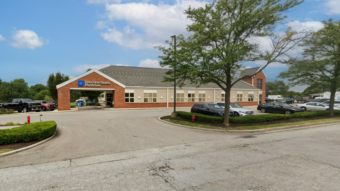Property management in the Chicagoland area is evolving rapidly, influenced by the influx of Generation Z into the workforce and the ongoing presence of Millennials. This shift is reshaping office design and management, presenting both challenges and opportunities.
“The influx of Gen Z into the workforce, along with Millennials, continues to reshape office design in Illinois and across the country,” said Amy Hall, COO of Caton Commercial. “This generation values flexibility, sustainability and technology integration, driving the demand for adaptable and eco-friendly workspaces.”
“Gen Z is the first generation that has always had the internet, and now, they demand seamless connectivity as they consume data, communicate via apps and move throughout spaces,” added Suzanne Hendrick, executive vice president of Xroads Real Estate Advisors, noting that property managers must adapt office spaces to meet their expectations for flexibility, sustainability and technology integration. “Landlords should rank Gen Z satisfaction as high as the ‘C-Suite’ or ‘decision makers.'”
To cater to this generation’s preferences, new office buildouts are designed with a casual, collaborative vibe featuring technology-friendly amenities such as WIFI, remote video conferencing capabilities and interactive building apps.
“Building amenity areas are extremely important as tenants rely on them to attract and retain talent,” said Hendrick.
Balancing the needs of different generations of tenants presents significant challenges for property managers as well. Hendrick stressed that delivering a quality office experience for various generations is always evolving, but all generations appreciate sustainability features and a focus on occupant wellness, such as building and event programming, health screenings and fitness-related amenities.
“We created an outdoor amenity space at one of our north suburban properties,” Hendrick mentioned as an example. “Tenants can now walk around in a natural setting, eat in the picnic area or congregate around the fire pit and enjoy the building’s colorful mural.”
Hall highlighted similar challenges and solutions. Technology expectations vary, with some tenants potentially struggling with new technology while others expect cutting-edge solutions.
“We offer technology training sessions to help less tech-savvy tenants adapt to new technologies,” said Hall, adding that Caton Commercial also guides clients to invest in sustainable practices like energy-efficient lighting and green building certifications.
Both Hendrick and Hall emphasized the transformative impact of technology on property management. Hendrick noted that cloud-based platforms and tenant apps have made communication with tenants much more efficient.
“They also lend added convenience for the tenant for everything from placing work orders to registering visitors to accessing building-related news and event programming,” said Hendrick.
Xroads Real Estate Advisors has implemented Building Hub, a customizable, cloud-based property management platform.
“We provide online portals for building services, maintenance requests and client/tenant updates. Mobile apps offer real-time notifications, booking systems for shared spaces and virtual concierge services,” said Hall, mentioning that Caton Commercial utilizes platforms like AppFolio and virtual tour software like Matterport to streamline communication and offer immersive leasing experiences.
Looking to the future, both Hendrick and Hall see a promising role for AI and emerging technologies in property management. Hall predicted that AI will revolutionize property management and tenant engagement.
“From forecasting maintenance issues and reducing downtime to improving client and tenant satisfaction, AI-driven analytics can provide insights into tenant preferences, allowing our clients to offer personalized services and amenities,” said Hall.
“AI will be most impactful when it replaces tasks – not communication or people. Property management is so dependent on building personal relationships, so as AI matures, we will be evaluating tools that allow us to be more productive without losing that human touch,” Hendrick added.
As Hendrick aptly put it, continuing to communicate with tenants to better understand their needs is crucial and smart property managers will incorporate key findings into their business plans.





